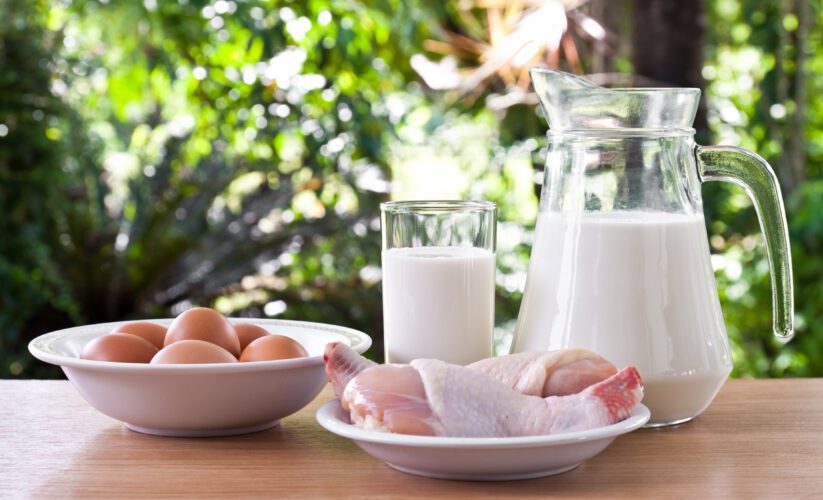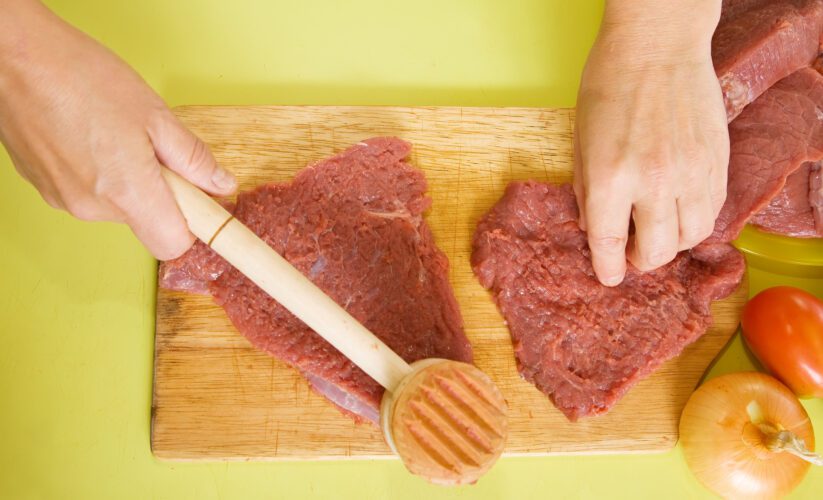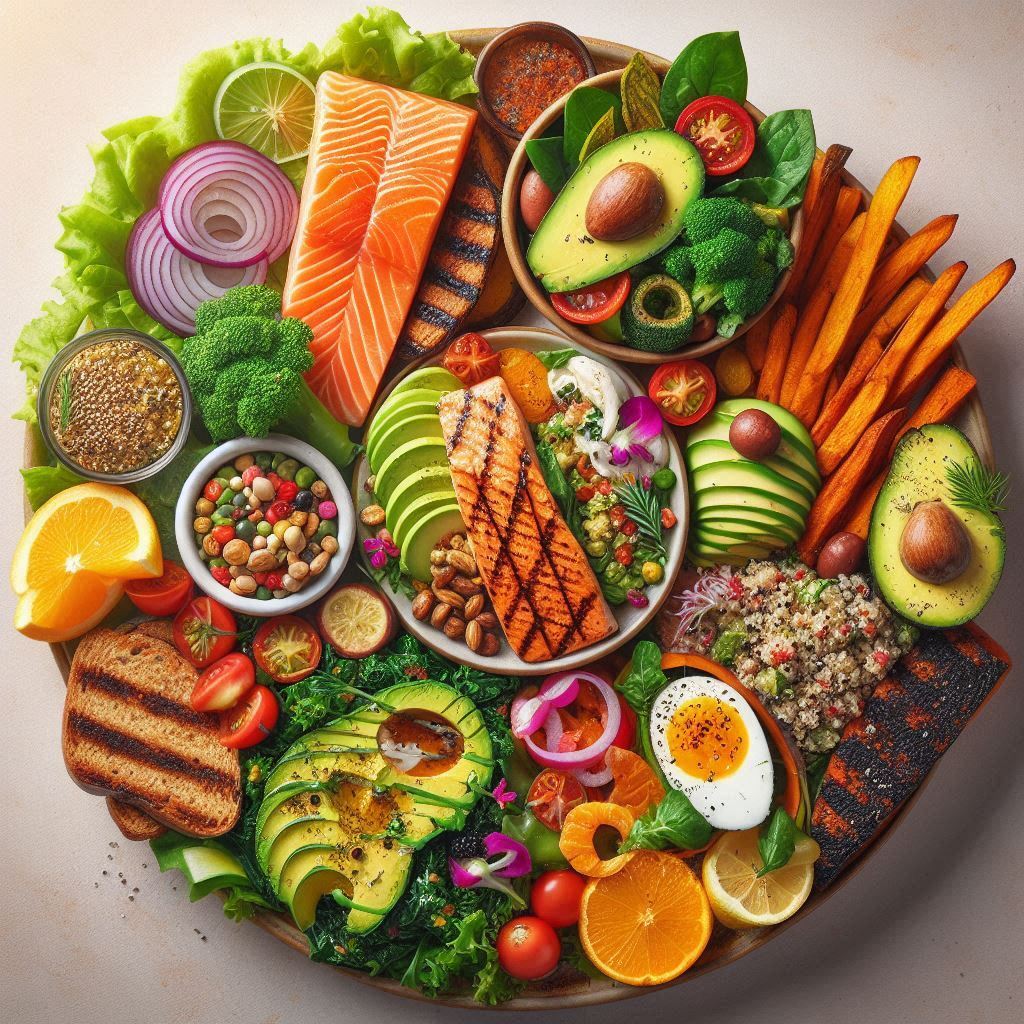Bird Flu Outbreak: Can You Safely Eat Eggs, Chicken, and Dairy?

The recent bird flu (avian influenza) outbreak has raised many consumer concerns about the safety of poultry and other products like eggs and dairy. With headlines warning of the potential dangers of bird flu transmission, many people wonder: Can I safely eat eggs, chicken, and dairy during this outbreak? The short answer is yes—if you take proper precautions. In this blog, we’ll explore why these foods are generally safe to eat, how to reduce any potential risks and answer some of the most frequently asked questions about bird flu and food safety.
What is Bird Flu?

Bird flu, or avian influenza, is a viral infection primarily affecting birds, especially wild birds and poultry. The current strain of the virus circulating is H5N1, which has been known to infect humans in rare cases. The disease spreads when birds come into direct contact with infected saliva, nasal secretions, or feces of other infected birds, or through contaminated surfaces. While there is little risk to humans from consuming properly handled and cooked poultry or eggs, there are some concerns about the potential for transmission from infected animals to humans through close contact or contaminated food.
Bird flu outbreaks have caused significant disruptions in poultry production worldwide, leading to culling of infected birds and shortages of eggs and chicken in some regions. But despite the fears, it’s important to know that the risk of contracting bird flu through eating eggs, chicken, or dairy products remains low if basic food safety practices are followed.
Is It Safe to Eat Eggs During the Bird Flu Outbreak?

The question of whether eggs are safe to eat during a bird flu outbreak is a common concern. The good news is that eggs sold in grocery stores are generally safe to eat. According to the U.S. Food and Drug Administration (FDA), there is no significant risk of bird flu transmission through eggs, particularly when they are purchased from reputable sources.
Here’s why eggs are still considered safe:
- Low Risk of Contamination: Eggs that reach consumers are typically produced in large commercial settings, where strict biosecurity measures are in place to prevent contamination from the avian flu virus. These measures include protecting chickens from exposure to wild birds and ensuring that eggs are collected and processed in sanitary conditions.
- Proper Cooking Eliminates Risks: As with any egg or poultry product, cooking eggs to the correct temperature is essential to eliminate any potential pathogens, including bacteria like Salmonella and viruses like avian flu. The FDA recommends cooking eggs to an internal temperature of 145°F (about 63°C) to ensure safety. Cooking eggs thoroughly destroys any harmful pathogens that might be present.
- Packaging and Storage Practices: Commercially produced eggs are often washed, disinfected, and stored at controlled temperatures, all of which reduce the likelihood of any contamination. When purchasing eggs, ensure they are stored in the refrigerated section of the store, and once home, keep them in your fridge until use.
Can You Get Bird Flu from Eating Chicken?

Another common question is whether it’s safe to eat chicken during a bird flu outbreak. The short answer is yes—chicken is safe to eat as long as it is properly handled and cooked.
Here’s why:
- Proper Cooking Is Key: As with eggs, the most effective way to ensure your chicken is safe to eat is by cooking it to the right temperature. The USDA recommends cooking chicken to an internal temperature of at least 165°F (74°C). This will kill any potential pathogens, including viruses like avian flu and bacteria such as Salmonella or Campylobacter, which are more common food safety concerns with raw poultry.
- No Risk from Processed Chicken Products: There is also no risk of contracting bird flu from processed chicken products, such as frozen chicken nuggets or pre-cooked deli meats, as long as these items have been cooked to safe temperatures. Processed chicken products undergo multiple safety checks during production, so the risk of contamination is minimal.
- Handling and Hygiene: While the risk of contracting bird flu from eating properly cooked chicken is low, the key is handling raw poultry carefully. Cross-contamination can occur if you don’t wash your hands or sanitize surfaces after handling raw chicken. Always use a meat thermometer to check internal temperatures, and avoid washing raw chicken, as doing so can spread bacteria around your kitchen.
Is It Safe to Eat Dairy During the Bird Flu Outbreak?

Dairy products, including milk, cheese, and yogurt, are not directly linked to the transmission of avian influenza. However, there are concerns about the potential for dairy contamination if cows were to be infected with the virus. While there is no evidence that bird flu can be transmitted to humans through pasteurized dairy products, some people may wonder whether they should avoid dairy altogether during an outbreak.
Here’s what we know about dairy safety during a bird flu outbreak:
- Pasteurization Kills Pathogens: The process of pasteurization, which involves heating dairy products to a high temperature for a short period, kills harmful bacteria and viruses, including avian flu. Therefore, pasteurized milk, cheese, and yogurt are safe to consume, even during a bird flu outbreak.
- Raw Milk Should Be Avoided: Unpasteurized (raw) milk, on the other hand, can pose a greater risk of foodborne illness, as it is not treated to eliminate harmful microorganisms. While bird flu has not been directly linked to raw milk, drinking unpasteurized dairy products is always a risky practice, particularly during an outbreak of any infectious disease. Always choose pasteurized dairy products to ensure safety.
- Dairy and Bird Flu Transmission: While bird flu can affect poultry and wild birds, there is no evidence to suggest that cows, that produce milk, are susceptible to the virus. Therefore, the risk of bird flu transmission through dairy products remains extremely low, as long as they are pasteurized.
How to Reduce Your Risk During a Bird Flu Outbreak

While the overall risk of contracting bird flu from eggs, chicken, or dairy is low, there are steps you can take to reduce any potential risks and ensure your food remains safe:
- Buy From Reputable Sources: Purchase eggs, chicken, and dairy products from well-established retailers or trusted local farms. Ensure that the products you buy are labeled as pasteurized (for dairy) and properly handled.
- Cook Thoroughly: Always cook eggs and poultry products to the recommended internal temperatures to kill any harmful bacteria or viruses.
- Practice Safe Food Handling: Wash your hands with soap and water before and after handling raw eggs, chicken, or dairy products. Clean and sanitize surfaces, utensils, and cutting boards after preparing raw poultry to prevent cross-contamination.
- Stay Informed: Keep up with the latest news and guidelines from health organizations like the CDC and FDA to stay informed about any updates related to food safety during the bird flu outbreak.
Frequently Asked Questions
- Can bird flu spread to humans through food? Bird flu is primarily spread through direct contact with infected birds or their droppings. The risk of contracting bird flu from eating cooked poultry, eggs, or dairy is extremely low.
- Can I get bird flu from eating eggs that are not fully cooked? While the risk of bird flu from eggs is minimal, consuming undercooked eggs increases the risk of foodborne illnesses like Salmonella. Always cook eggs thoroughly to reduce any health risks.
- Is it safe to drink milk during a bird flu outbreak? Yes, pasteurized milk is safe to drink during a bird flu outbreak. Pasteurization kills harmful pathogens, including viruses and bacteria, making dairy products safe for consumption.
- Should I stop eating chicken during a bird flu outbreak? No, it is safe to eat chicken as long as it is cooked properly to an internal temperature of 165°F (74°C). Proper cooking eliminates any potential risks of illness.
- What are the symptoms of bird flu in humans? Bird flu symptoms in humans can range from mild to severe and include fever, cough, sore throat, muscle aches, and in severe cases, respiratory distress. If you suspect you’ve been exposed to bird flu, seek medical attention promptly.
Conclusion
While the bird flu outbreak can be concerning, it is important to remember that eggs, chicken, and dairy products are generally safe to consume as long as proper food safety practices are followed. By buying food from reputable sources, cooking products to the correct temperatures, and practicing safe handling techniques, you can significantly reduce your risk of contracting any foodborne illnesses, including bird flu. Stay informed, stay safe, and continue to enjoy these nutritious foods with confidence.




